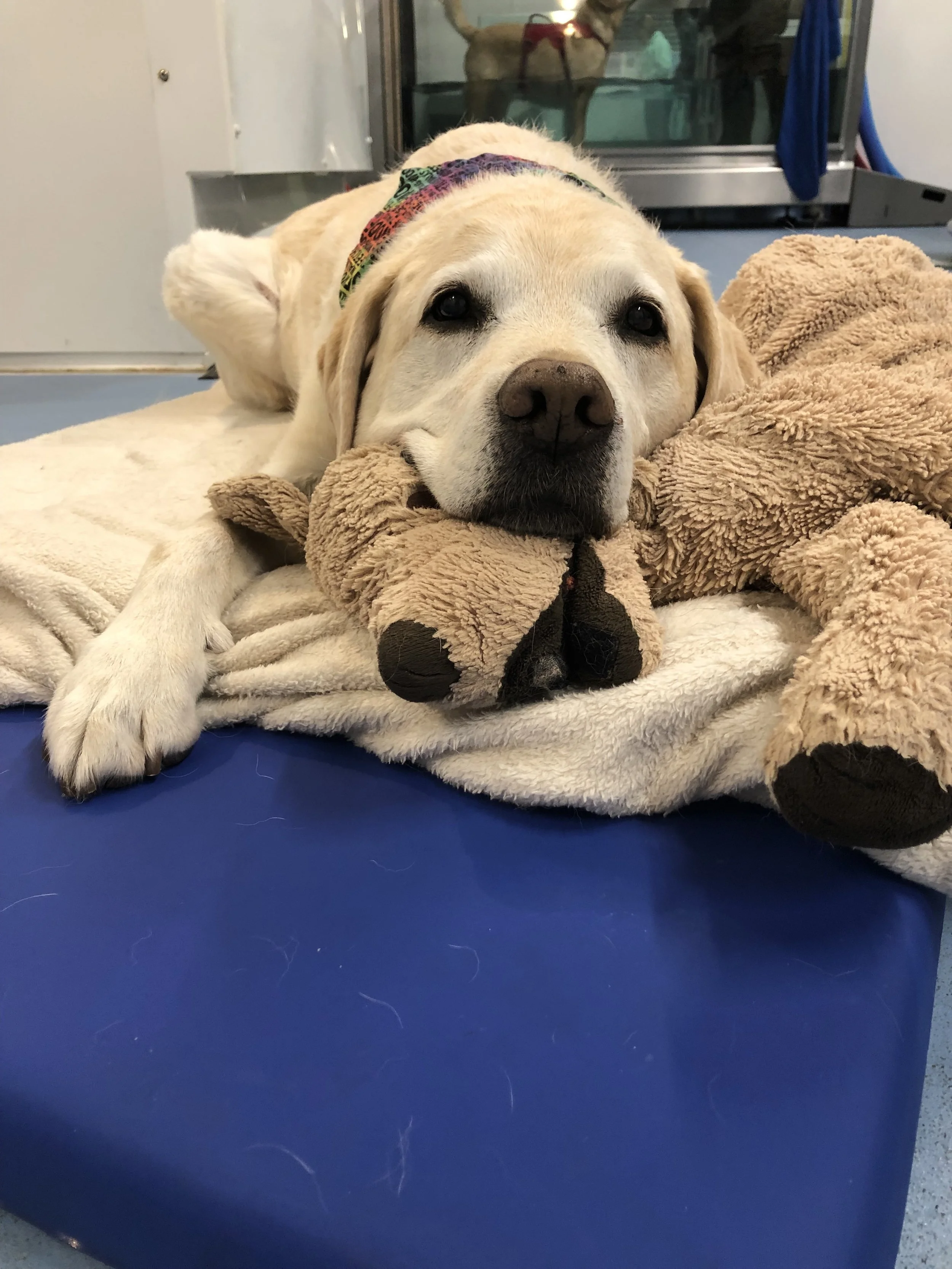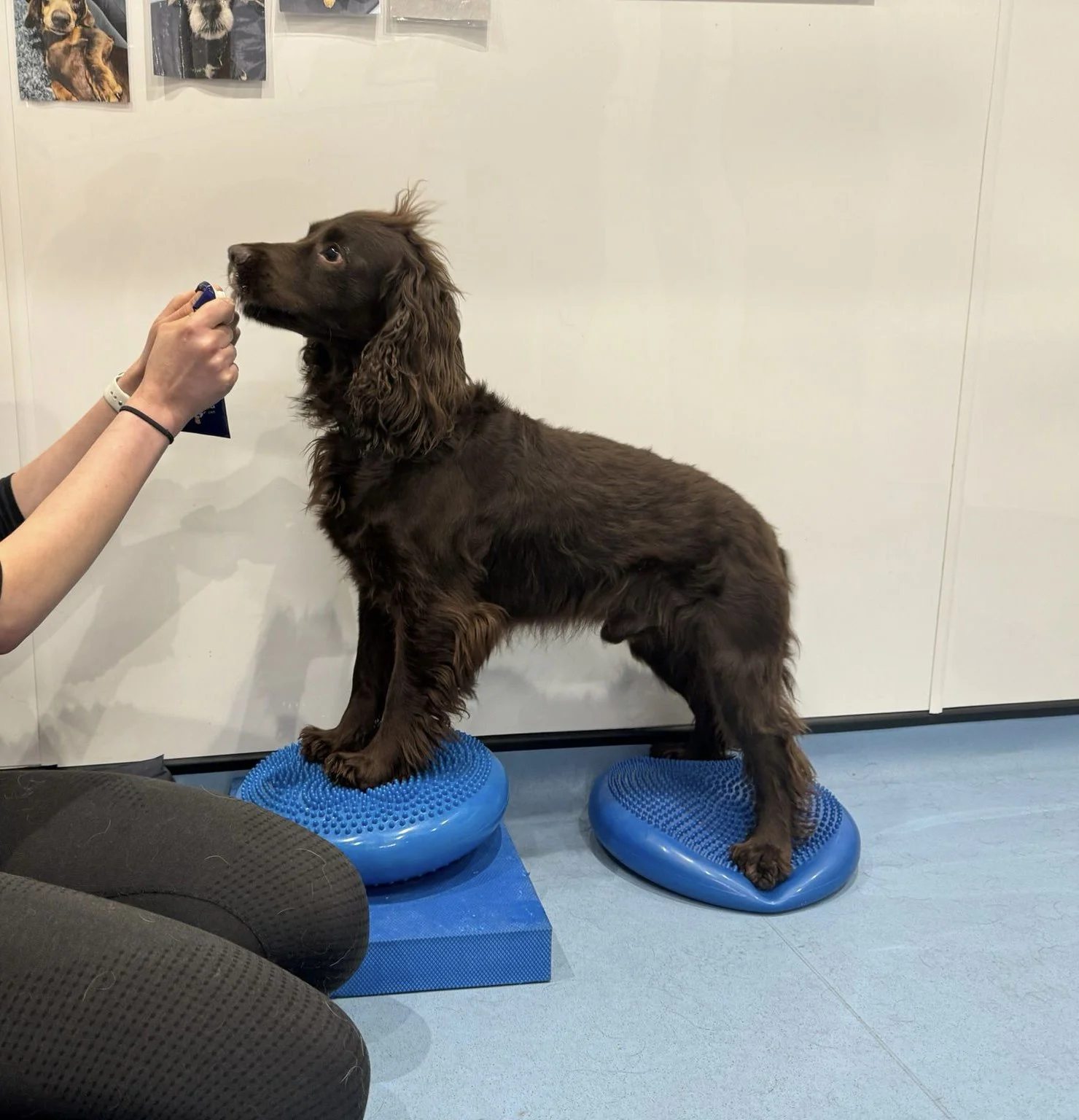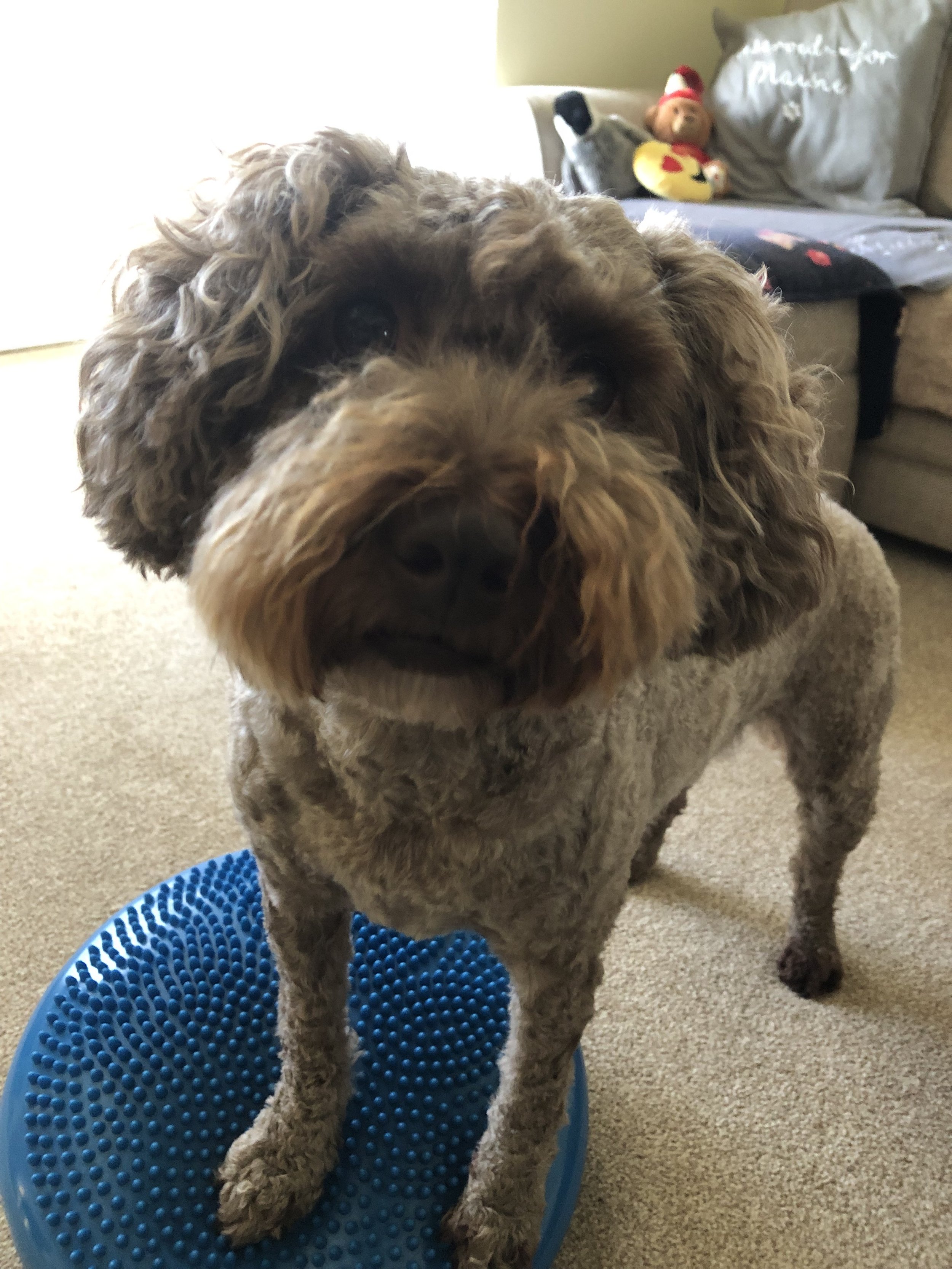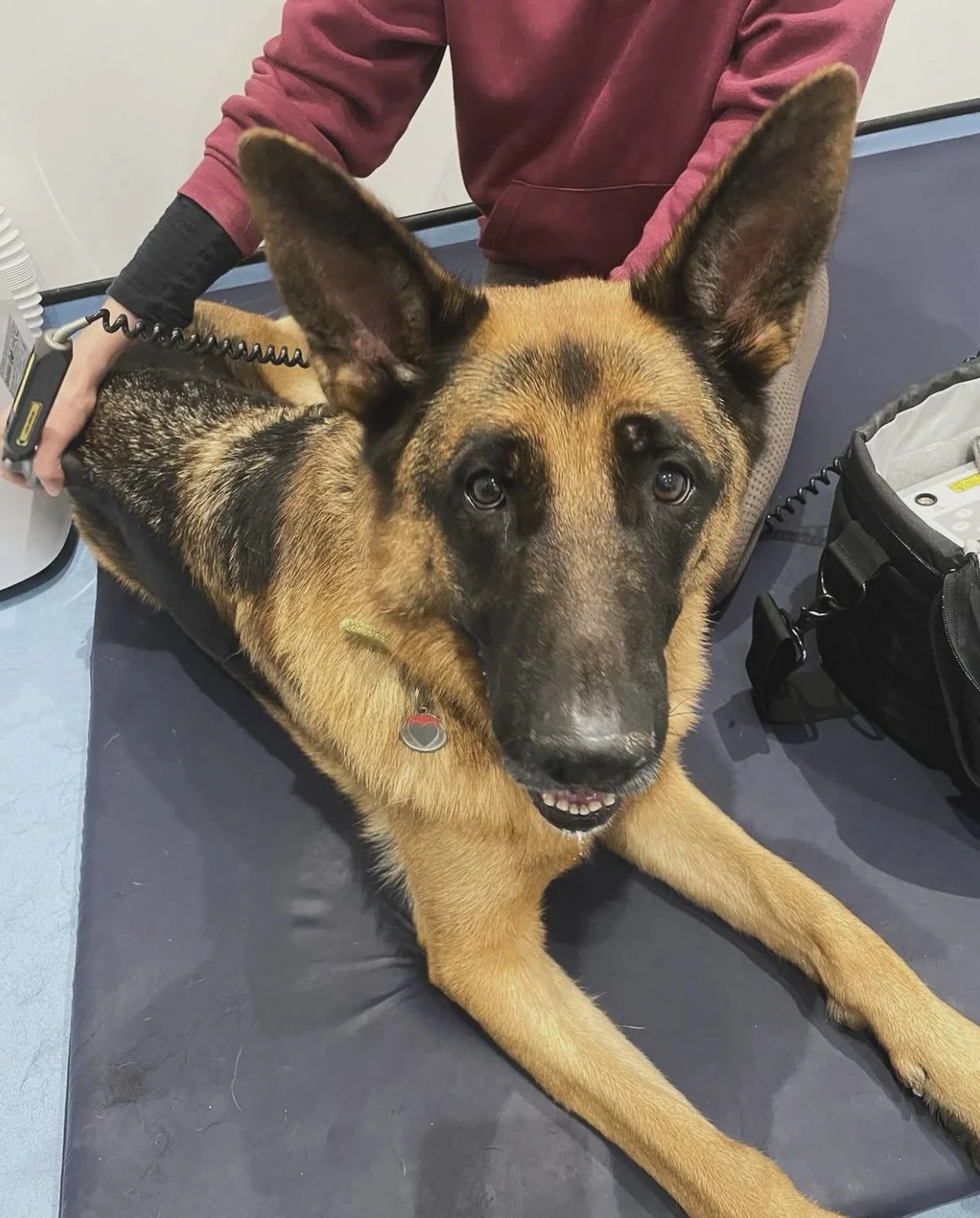
Frequently Asked Questions
How do I know if my animal needs physiotherapy?
Whether an animal is recovering from a recent injury or surgery, a top level performance athlete, or an elderly pet - a bespoke and individual physiotherapy program can benefit them all!
Post-surgery/injury - physiotherapy aims to restore normal function, optimise healing and reduce discomfort. Meanwhile a performance animal would benefit from programs designed to strengthen and condition their body, whilst keeping on top of muscle soreness and fatigue. Generally, the most common sign your animal needs physiotherapy is change. Perhaps a change in their behaviour or mood, an aversion to being touched over a certain part of their body. Maybe you have noticed they are stiff after exercise or after periods of resting. Are they reluctant to exercise, struggling with getting in/out the car or climbing stairs. With horses, a lack of progression during ridden work may also be a sign.
Why do I need veterinary referral?
In accordance with the Veterinary Surgeons (Exemptions) Order 2015, all ‘remedial treatment by physiotherapy requires delegation by a veterinary surgeon who has first examined the animal’. This ensures we are aware of all health conditions, illness’ and injuries and can accommodate these in our physiotherapy programs. We will liaise with vets and other paraprofessionals throughout each animals physiotherapy journey, notifying them of assessment findings and treatment plans. As standard, we require an updated referral form after 6 months. We may require this sooner should an animal undergo surgery, or be diagnosed with an additional health condition.
How can I pay?
Payments can be made via cash or by bank transfer up to 24 hours after the appointment. If opting for bank transfer, Emily will provide details of how to do so at time of the appointment.
How many sessions will my animal need?
This varies between patients and is dependent on numerous factors. Generally, acute injuries require physio 1-2 times per week, with the frequency of these sessions decreasing as the condition improves. Progressive conditions, such as arthritis, benefit from a regular and consistent long-term physiotherapy program. This could be weekly, fortnightly or monthly depending on the individual and the severity of the diagnosis. For conditioning/sporting animals, frequency will depend on their level of work and competition schedule. We find this is usually fortnightly to monthly; though we see some top athletes up to 2 times per week!
Work schedules and financial restraints can be limiting factors, however we aim to work alongside owners to create a consistent program that considers all these aspects whilst addressing each animals individual need.
What does it mean to be an NAVP, RAMP & IRVAP accredited physiotherapist?
The NAVP (National Association of Veterinary Physiotherapists) and IRVAP (Institute of Registered Veterinary & Animal Physiotherapists) are both professional organisations. These accredit physiotherapists of a certain level of expertise, with a Level 7 being the highest graded Vet Physio in the UK. RAMP (Register of Animal Musculoskeletal Practitioners) is a collective register legislating professional practice. Unfortunately the world of veterinary physiotherapy is unregulated, meaning that many individuals are practising without the appropriate training/qualifications, and without being governed by RAMP. All 3 are currently seeking change, and are working together alongside the RCVS and DEFRA to solidify the regulatory body of RAMP, making its membership a professional requirement. Many vets are supportive of this change and will only refer to physios accredited by either NAVP or IRVAP who also hold a RAMP membership.
How long is each session?
For initial appointments, Emily allows up to 1.5 hours for small animals (cats & dogs), and up to 2 hours for horses. This allows enough time to obtain a thorough understanding of a patients history, a detailed initial assessment and of course, the treatment! Typically, small animal follow up appointments are 1 hour, and equine appointments are 1-1.5 hours. Whilst these timings work well for most animals, some nervous patients may take a little more time. In these situations, slow and steady is always best and we will allow as much time as necessary.
Will my insurance cover physiotherapy?
This varies from case to case. However, generally speaking most insurance providers will provide a certain level of cover for physiotherapy services.
Some of our friends










